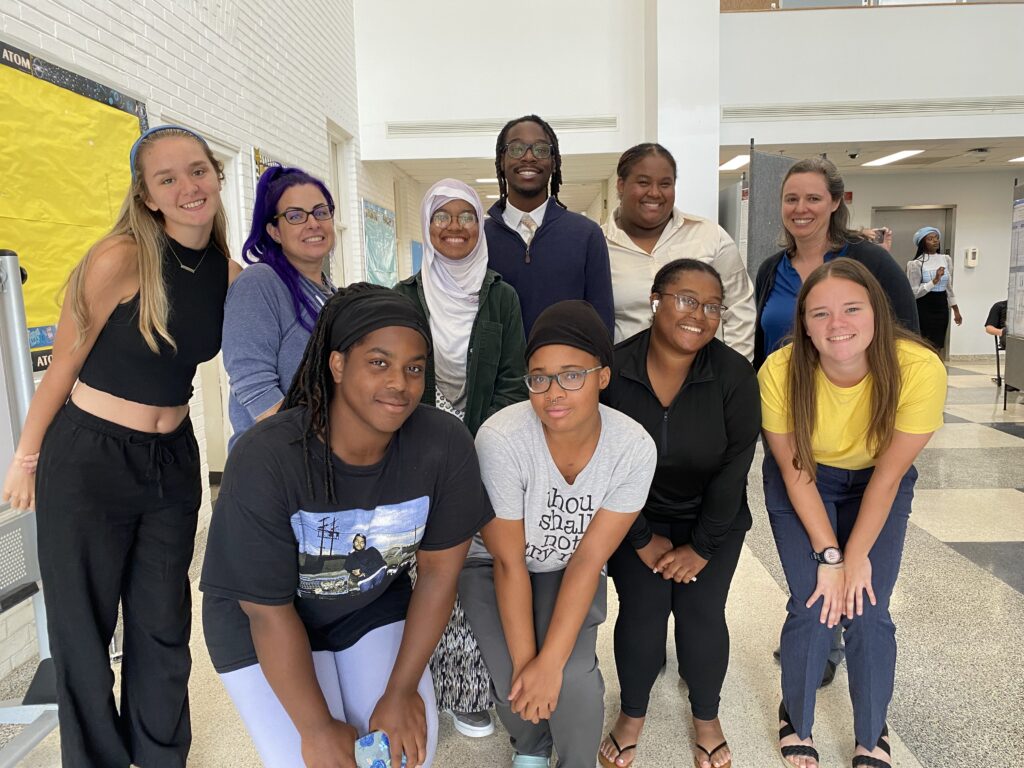
Two months of rigorous research culminated in a series of oral and poster presentations on the campus of the University of Maryland Eastern Shore.
The 2024 Summer Research Symposium in August encompassed the work of more than 20 students from three programs: the Research Experience for Undergraduates (REU) program, funded by the NOAA LMRCSC; the Louis Stokes Alliance for Minority Participation (LSAMP) program, funded by the National Science Foundation (NSF); and the Geoscience Bridge Program, funded by the NOAA LMRCSC and the NSF.
Each program allows underclassmen from UMES and other universities to conduct original research, take field trips, attend seminars and workshops, and build relationships with expert faculty and graduate students.
The interns’ experience was guided by UMES faculty mentors, including NOAA LMRCSC Director Dr. Paulinus Chigbu, Deputy Director Dr. Magaret Sexton, as well as graduate student mentors, including NOAA LMRCSC Fellows Kayland Huckaby, Tebyan Ahmed, and Tahirah Johnson.
REU interns conducted research projects in one of a wide range of marine science topics. Several interns worked with Dr. Sexton and Dr. Eric May to examine horseshoe crab DNA and mortality rates. Other REU interns worked with Dr. Ali Ishaque to measure nanoplastics in Maryland Coastal Bays. One intern, Zhaniya Harris, looked at the effects of climate change on the Gulf of Mexico by examining groundfish species in Mississippi and Alabama, led by Dr. Chigbu and LMRCSC Ph.D. Fellow Kayland Huckaby.
LSAMP interns’ research spanned across the land, sea, and space. UMES student Anthony Taylor looked at the effect of local chicken houses on air quality. UMES student Marvelous Ogunmoroti measured inertia with Dr. Kausik Das. UMES student Maggie Nana worked with Dr. Tracy Bell to examine zinc chloride in zebrafish.
Geoscience interns–all incoming college freshmen mentored by Dr. Chigbu, Dr. Ishaque and graduate student Cy’Anna Scott–presented their findings from measuring local waterway characteristics, including populations and diet analyses of species within the waterways. This six-week program taught students how to collect and dissect samples and glean information from them. It also gave students a jump start on their college studies by offering math and chemistry course credits.
UMES SANS Dean Dr. Moses Kairo congratulated the students on their summer accomplishments. “I am excited for you to get this opportunity,” he said, “getting to the edge of where new science is made.”
As a student at the University of Nairobi, Dr. Kairo said, he completed a summer internship researching mosquitoes. The experience led to a job, the ability to travel across continents, and eventually to his position at UMES. “I wish you well as you move from here to the next step in your journey,” he said.

